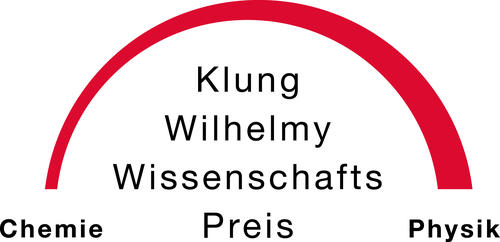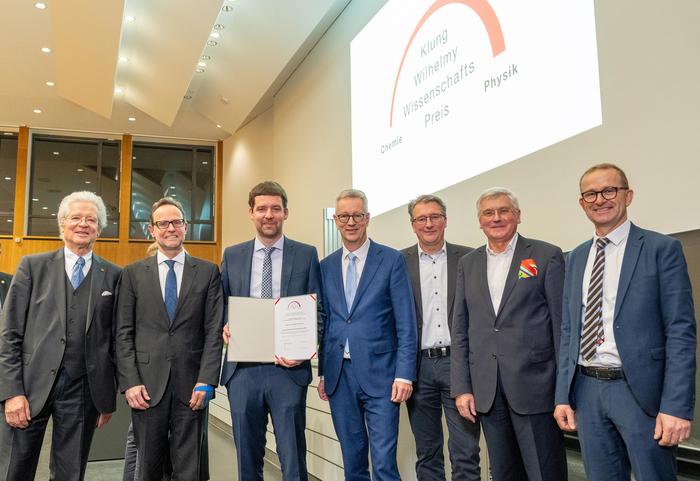Call for Nominations: Klung Wilhelmy Science Award in Physics 2025
Please find the call for nominations for the Klung Wilhelmy Science Award in Physics 2025 here.
Klung Wilhelmy Science Award 2024
Dr.-Ing. Lothar Wilhelmy, Prof. Dr. Peter R. Schreiner, Preisträger Prof. Dr. Max Martin Hansmann, Prof. Dr. Günter M. Ziegler, Prof. Dr. Sebastian Hasenstab-Riedel, Prof. Dr. Hans-Ulrich Reißig, MinDirig Dr. Ralf Gebel (v.l.n.r.).
Image Credit: Michael Fahrig
The 2024 Klung Wilhelmy Science Award for Chemistry was awarded to Prof. Dr. Max Martin Hansmann (TU Dortmund University).
Klung Wilhelmy Science Award
The Klung Wilhelmy Science Award,
1973 to 2001 Otto-Klung-Award,
2001 to 2007 Otto-Klung-Weberbank-Award,
2007 to 2013 Klung-Wilhelmy-Weberbank-Award,
is an annual German science award that alternates annually between the fields of chemistry and physics.
The Klung Wilhelmy Science Award is presented under the patronage of the German Federal Minister of Education and Research, Bettina Stark-Watzinger.

